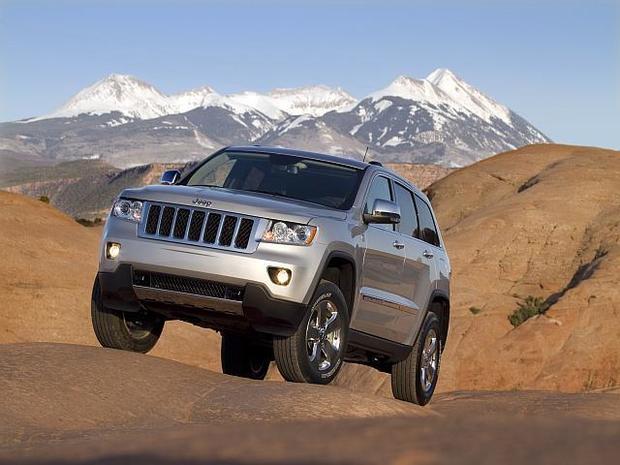Americans buy more new cars despite higher price tag
Americans are paying more for new cars but still buying more of them. The average new car price tag in December was $30,686 according to data from auto information site TrueCar.com. That is a 5.8% increase from a year earlier, even as overall car and truck sales in 2011 rose by 8.7% to about 12.8 million.
Buyers opted increasingly for technology and comfort features on their vehicles, leading to the higher transaction price, notes industry analyst Jesse Toprak at TrueCar.
Rising sales were especially sweet for Chrysler, up 37% over a year earlier and Volkswagen, with a 31% increase in sales. And Hyundai, up a more modest 13%, moved above 4% market share for the first time while spending only a lean $634 per vehicle in rebates and other incentives, notes analyst Ivan Drury of Edmunds.com. Hyundai's Korean corporate stable mate Kia saw sales rise by 42% and now has a 3.5% market share.
Some of the big sales increases came from consumers responding to year-end deals. Chrysler Group incentives in December topped all others at $3,246 per vehicle, according to TrueCar. Redesigned models such as the Jeep Grand Cherokee (pictured above) paced Chrysler.
Here is a closer look at some individual company results with analyst commentary:
-- Chrysler: After taking over Chrysler during the government bailout, Fiat moved swiftly to bring out improved models and launch savvy marketing campaigns. The "Imported from Detroit" Super Bowl ad for the Chrysler 200 featuring Eminem boosted shopper traffic on the Edmunds.com website by 267%. "In 2009, Chrysler's survival was in question. Now it has done a remarkable job replenishing its product pipeline," says Michelle Krebs, senior analyst for Edmunds.com.
-- Volkswagen: VW brought out totally new versions of the Jetta and Passat, inviting the scorn of some critics like reviewers at Consumer Reports. But the new cars, with reduced list prices, resonated with consumers. "Volkswagen's momentum continues to be worth watching as the brand had its best December sales since 1972," says analyst Ivan Drury of Edmunds.
-- General Motors: With Toyota and Honda sales disrupted by the earthquake and tsunami in Japan, GM regained its top sales spot with over 18% market share. But analyst Michelle Krebs points out that Chevrolet models carried the rest of the company with strong sales for small-car introductions like the Cruze and Sonic and for specialty models like the muscle car Camaro.
-- Ford: With sales up 10% over 2010, Ford held on to the title of best-selling individual vehicle for its F-series pickup. The company introduced well-received small, fuel-sipping models Fiesta and Focus but still sold three trucks for every car in its lineup. That included surging sales for its redesigned Explorer SUV.
-- Honda and Toyota: Hit hardest of Japanese companies by the disaster due to a disruption of parts, Honda's inventory suffered and sales were down nearly 19% for the year. The company, with new versions of the crossover CR-V and midsize sedan Accord being introduced, says inventories have now recovered. Major rival Toyota was down almost 7% for the year, but its Camry - after trailing competitors in several months - still retained its title as best-selling car for all of 2011.

